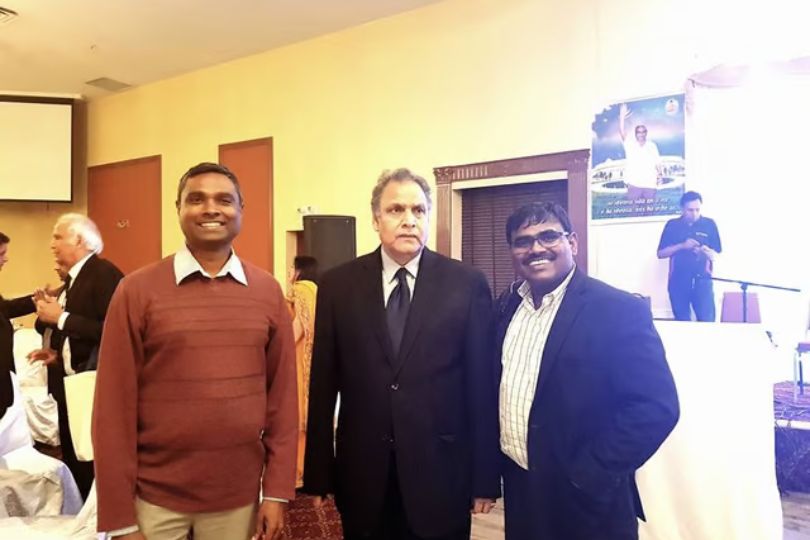Dr. Chinnaiah Jangam Receives the Prestigious A.K. Ramanujan Book Prize for Translation, Elevating Dalit Literature on the Global Stage
Discover the transformative power of Dalit literature with Dr. Chinnaiah Jangam's award-winning translation of "Gabbilam," shedding light on Andhra Pradesh's Dalit Movement.on Feb 29, 2024

The poetry collection 'Gabbilam' provides unique insights on Andhra Pradesh's Dalit Movement prior to independence.
Dr. Chinnaiah Jangam, an Indian-origin writer of Telugu heritage and a Professor of History at Carleton University in Ottawa, Canada, has received the coveted A.K. Ramanujan Book Prize for Translation (South Asia), providing a substantial boost to vernacular Dalit literature.
Dr. Jangam is honoured for his translation of "Gabbilam: A Dalit Epic" by Gurram Jashuva, widely regarded as the Father of Telugu Dalit Literature. The Sheraton Grand Hotel in Seattle, Washington, USA, will host the award ceremony.
Dr. Jangam spoke with The Mooknayak about the award's significance, emphasising its prestigious reputation in the South Asian profession. He underlined the prize's global recognition and emphasised its historical significance as the first time two Dalit writings were chosen for this prestigious award. "This is the first time two Dalit writings have been chosen for honours; one is my translation of Gabbilam, and the other is Sailaja Paik's book. It is important to emphasise that Dalit literature is becoming recognised as an emergent subject of study that challenges the status quo in South Asian studies', he remarked.
Jangam stated regarding the author, "Gurram Jashuva, the original author of 'Gabbilam,' is hailed as a pioneer in Dalit literature in Telugu and is often referred to as the father of Dalit literature." He made history as the first Dalit writer to write poetry in traditional Telugu, using Sanskrit-style metres to show his equality with the Brahmin pandits of his period. Jashuva's broad corpus of work explored a wide range of issues, with a special emphasis on the sufferings of untouchables. His writings not only fought caste injustice, but also pushed for Dalits' equal rights and representation in all aspects of life.
Continuing, Jangam stated, "The poetry collection 'Gabbilam' provides unique insights on the Dalit Movement in Andhra Pradesh before to independence. Jashuva's writings demonstrate the complex character of Dalit struggles, highlighting their capacity to convey their experiences through classical poetry. As an anti-caste thinker, Jashuva used his creative endeavours to highlight the humanity of Dalits, contributing to a rich canon of literature that evolved from the Dalit movement prior to independence. This literary production mirrored vibrant political movements, jointly defining the sociopolitical environment of the time.
In terms of notable lines or situations in the novel, Jangam stated, "Several poignant lines and scenes in 'Gabbilam' evoke empathy and shed light on the harsh realities faced by Dalits." The protagonist's resolve to stay celibate as a sort of protest against caste tyranny is a powerful act of defiance, aimed at preventing future generations from experiencing the same humiliations. Furthermore, the title, 'Gabbilam,' meaning bat, acts as a revolutionary symbol, symbolising the condition of untouchables, who were frequently seen as inferior to animals in society."
In addition to his translation work, Dr. Chinnaiah Jangam has made substantial contributions to academia with his book 'Dalits and the Making of Modern India,' released by Oxford University Press in 2017. This significant essay argues for Dalits' central role in shaping India's national identity and politics.
Dr. Jangam thinks that Dalits played an equal role in shaping India as a nation, providing ideas and campaigning for ideals of equality and human decency. Dalits contributed significantly to ensuring that these values were inscribed in the preamble of the Indian constitution, which was prepared by B.R. Ambedkar.



.jpg)






.jpg)

.jpg)
.jpg)
.jpg)
.jpg)
.jpg)
.jpg)










Sorry! No comment found for this post.